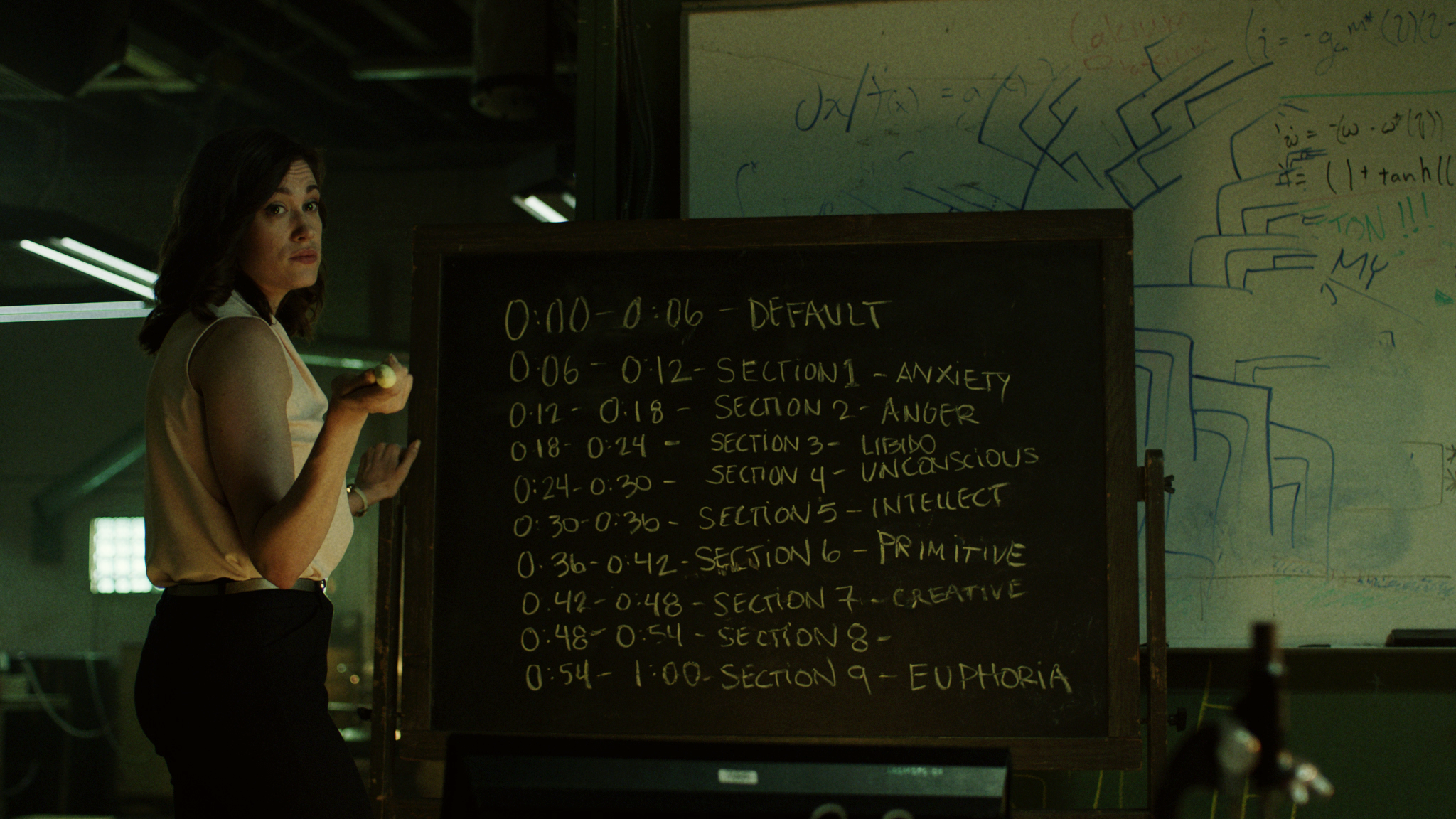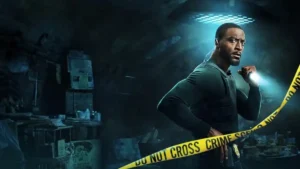Summary
A science-based sci-fi thriller about memories, personality, and research academia from first-time director Eric Schultz. Intriguing, satisfying story, which I’ll probably watch again, just to admire how it is all assembled.
Ethan Kochar (Sathya Sridharan) is a young lecturer and research scientist, working in cutting edge neuroscience. He took over a project of his father’s in order that it could be completed once his father died, but now acutely hurt that he cannot get credit for work of his own. Minor Premise is about the risks of experimenting solo, and at the same time about the nature of mind, identity, and the value of memories. It’s gripping, intelligent, and quite original in its presentation: this is another example of a sci-fi film with a fairly simple story in which the resources are used so well that the low budget is not an issue in the slightest.
But back to the story. Ethan – who virtually narrates a good deal of the film via talking to himself or audio logs – tells us early on the scenario in a nutshell:
Our major premise: the link between our emotions and our accumulated memories regulates human consciousness. Minor premise: the R10 can isolate sections of the brain which impact emotions and behavior. Conclusion: the R10 is capable of controlling human consciousness.
While developing his father’s work further, Ethan is also struggling with grief, his role in research, and occasional blackouts. In the naïve (or desperate) hope that the R10, an experimental machine, can isolate the part of his mind that’s responsible for his intellect, so he can live up to the expectations around him, he plugs himself in. Unfortunately, it doesn’t quite turn out that way: instead, it fragments his consciousness into the nine sections it has identified, and they all take turns for six-minute spells, so that each separate section leads once an hour, including a turn for all combined (the “default”). Interestingly, these aren’t different (or “split”) personalities, but rather distinct aspects of his actual personality.

The editing is lovely. Much of Minor Premise is made up of little snippets from Ethan’s life, or recordings that he views of his own behavior; none of the sections is aware of what any of the others do or have been doing, so he sets up security cameras to observe and understand his own experiences. It works remarkably well, as it allows us to get inside his fractured mind, and it’s especially intriguing when you realize that it’s not always clear if the character you’re watching is one of his “sections” or the “default”. Equally, the film isn’t entirely linear, being made up of thoughts and memories as well as sequential acts. It can be a little baffling at first, but Sridharan plays Ethan so endearingly (at least in most of his sections) that – like his friend/ex Alli (Paton Ashbrook) – you can’t help but want to see him through to the reintegration he needs. The poor soul is losing his marbles, he’s exhausted, suffering headaches, and gradually worse.
Sridharan plays Ethan with admirable dexterity, cycling through aspects of his character, though they all fit with him. We’re all made up of creativity, anxiety, intellect, libido, anger, etc., but as his character has to present all of them over and over again, this is quite a showcase for Sridharan. In contrast, Paton Ashbrook’s Alli, who partners with Ethan in working to resolve his predicament, is almost a control model, a balanced individual to contrast with his chaotic mind. It’s also fascinating to consider Ethan’s distilled characteristics from her point of view: there were clearly aspects of Ethan that she was fond of, and others that she didn’t want to face, but they all make up one whole person.
Minor Premise is very wordy, intellectual, and ultimately science-based. It can feel a bit heavy going until you acclimatize and let yourself roll with it. There is plenty of basic explanation to both the science (especially in the opening lecture) and the motivations behind some of Ethan’s reckless decisions, but never dumbed down. The audience has to pay good attention to the zigs and zags of the (albeit small-scale) thriller, and in doing so will probably feel like they are following more of the pseudo-academic talk than they really are.
Cleverly set largely in one techie room – and the main character’s mind – director Eric Schultz keeps everything remarkably varied and fast-moving; to me, it didn’t feel long at all. Schulz also wrote the film, with Justin Moretto (who brought the neuroscience expertise) and Thomas Torrey, extrapolated from their short film by the same team, and featuring the same leading man. Minor Premise brings to mind several existing stories, of course, but only slightly: it’s especially rare to find a science-fiction film which has its starting point in real-world scientific advances, rather than fantasy. So much sci-fi just shrugs off logic or physics, but this one feels real. It’s an impressive debut and I will be on the lookout for where this team goes next.




